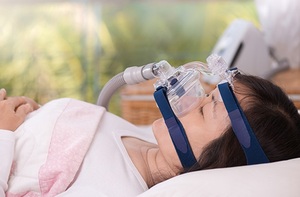How Effective Are Oral Appliances For Sleep Apnea In Houston?
Body
Do you or a loved one battle with sleep apnea, a disorder that causes breathing interruptions while you sleep? If so, you might be familiar with dental appliances as a potential remedy. This article will provide you with a thorough analysis of how well this oral appliance for sleep apnea near me works to cure sleep apnea.
Understanding Sleep Apnea
Understanding sleep apnea is crucial before discussing how effective oral appliances are. When you have sleep apnea, your breathing frequently pauses and resumes while you are asleep. A brain signal issue or restricted airways may be to blame for this. Obstructive sleep apnea (OSA), the most prevalent variety, is caused by the throat muscles relaxing too much as you sleep, blocking your airway.
Serious effects may result from sleep apnea. Extreme daytime tiredness, loud snoring, and even more serious health problems, including high blood pressure and heart troubles, can result from it. Finding efficient therapies is essential because of this. Also, discuss the cost of oral appliance for sleep apnea with your dental professional.

Oral Appliances: What Are They?
Let's now discuss oral appliances. You put these tiny gadgets in your mouth and wear them to sleep. They are made to keep your airway open and keep it from compressing while you sleep, which minimizes or completely eliminates breathing interruptions.
Effectiveness Of Oral Appliances
Mild to Moderate Sleep Apnea: Highly Effective
Oral appliances have the potential to be very successful for persons with mild to moderate sleep apnea. These devices can considerably lower the amount of apnea episodes while you sleep, according to studies. They function by shifting the lower jaw or tongue to maintain an open airway and promote easier breathing.
Severe Sleep Apnea: May Provide Some Relief
Oral appliances may not be as helpful in treating severe sleep apnea as continuous positive airway pressure (CPAP) therapy, which uses a machine to administer air pressure to keep the airway open continuously. Oral appliances, however, may still offer some comfort and enhance sleep quality for certain people who cannot tolerate CPAP.
Easy to Use and Comfortable
Oral appliances' comfort and ease of usage are two of their key benefits. Oral appliances are relatively small and fit in your mouth like a dental guard, in contrast to CPAP machines, which require you to wear a mask over your mouth and nose. They are more comfortable and less invasive in the eyes of many people.
Customization is Key
It's vital to remember that each person will experience oral appliances differently. To ensure that the device fits your mouth comfortably and performs as intended, customization is essential. The device can be specially made for you with the assistance of a sleep apnea specialist near me.
Considerations And Side Effects
While oral appliances can be a valuable tool in managing sleep apnea, there are some considerations and potential side effects to be aware of:
Cost:
Insurance coverage varies, and oral appliances may be costly. Understanding your coverage possibilities requires speaking with your insurance company.

Maintenance:
To keep these devices functional and hygienic, they need to be cleaned and maintained on a regular basis.
Temporomandibular Joint (TMJ) Discomfort:
When utilizing oral appliances, some persons may feel brief discomfort in the TMJ. Adjustments to the device can generally solve this.
Dental changes:
Regular use of oral appliances may result in modest dental modifications or alterations to the bite. To keep an eye on any potential problems, regular follow-up visits with a dentist are necessary.
Conclusion
In conclusion, oral appliances can be a successful treatment for central sleep apnea choice for mild to severe sleep apnea, providing many people with better sleep quality and comfort. Those who cannot tolerate the CPAP machine can nevertheless offer relief even if they might not be as effective as CPAP therapy for severe sleep apnea.
Overall, these gadgets provide a potential way to improve your sleep quality and ability to breathe comfortably, which will ultimately improve your general health.










Comments